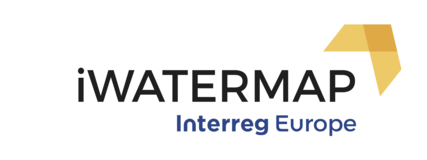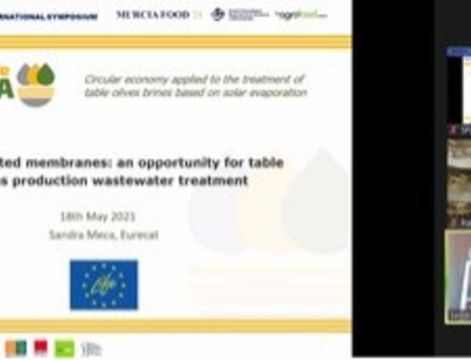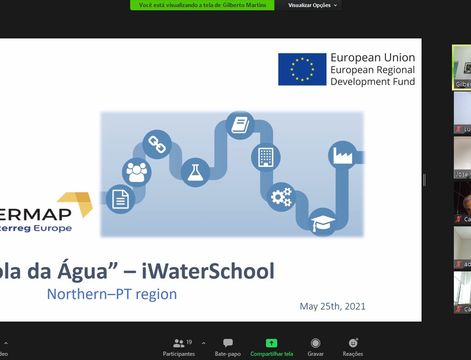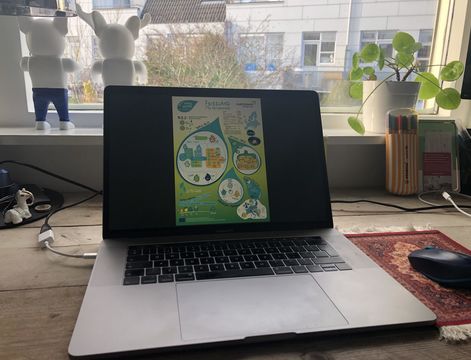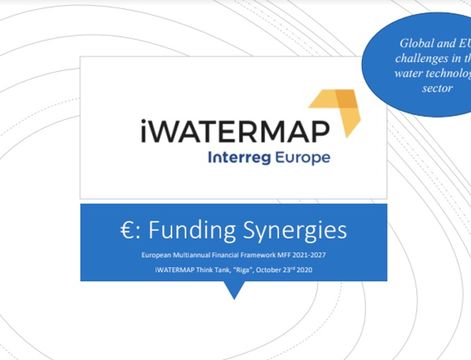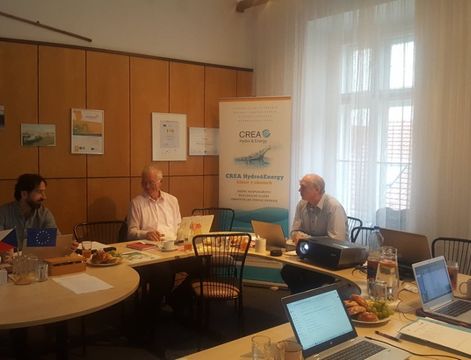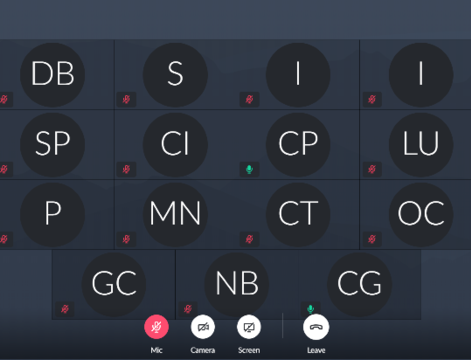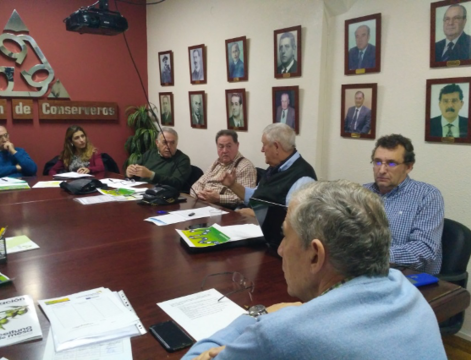Place: Auditorio y Centro de Congresos Victor Villegas, Murcia, España
Agenda:
* Introduction on the Interreg Europe iWATERMAP Project.
* Initial presentation on the work areas of the invited stakeholders.
* Discussion about strengths, weaknesses, opportunities and threats in water management in the Region of Murcia. Critical mass, human capital (training) and interregional cooperation
* Conclusions.
Stakeholders:
Consejería de Agua, Agricultura, Ganadería y Pesca de la Región de Murcia (CARM), Centro Tecnológico Nacional de la Conserva y Alimentación (CTC), Empresas del sector agroalimentario, Universidad de Murcia, Universidad Católica San Antonio de Murcia (UCAM), Centro de Edafologia y Biología Aplicada del Segura del Consejo Superior de Investigaciones Científicas (CEBAS-CSIC), Centro Integrado de Formación y Experiencias Agrarias de Molina de Segura (CIFEA Molina de Segura-CARM), Entidad de Saneamiento y Depuración de Aguas Residuales de la Región de Murcia (ESAMUR) y Europe Direct Murcia (Dirección General de Unión Europea, Acción Exterior y Cooperación (Consejería de Presidencia-CARM))
Participants:
* Facundo Pérez, Jefe de Servicio de Industrias y Promoción Agroalimentaria. Consejería de Agua, Agricultura, Ganadería y Pesca de la Región de Murcia, CARM
* Juan José Alarcón, Director del CEBAS-CSIC. Miembro del Departamento de riego, CEBAS-CSIC
* Mercedes Llorens, Catedrática Universidad. Miembro del Grupo de Tecnología del Agua del Departamento de Ingeniería Química. Facultad de Química. Universidad de Murcia.
* José Antonio Gabaldón, Profesor del Grupo de Investigación Reconocimiento y Encapsulación Molecular (REM) de la UCAM.
* Pedro Angosto, Director del Centro Integrado de Formación Profesional Agraria (CIFEA) de Molina de Segura, dependiente de la Consejería de Agua, Agricultura, Ganadería y Pesca.
* Carlos Lardín, Responsable de Explotación de Zona de ESAMUR.
* Teresa Allepuz, Responsable de Europe Direct Región de Murcia. (Dirección General de Unión Europea, Acción Exterior y Cooperación (Consejería de Presidencia-CARM))
* Pablo Flores, Gerente del CTC.
* Miguel Ayuso, Responsable del Área de Medio Ambiente del CTC.
* Angel Martinez, Responsable de I+D+I y OTRI del CTC.
* Javier Cegarra, Asesor de empresas agroalimentarias
* Antonio Sáez, Asesor de empresas agroalimentarias
* Ana Belén Morales, Técnico del clúster AGROFOOD Murcia
CONCLUSIONS: In the Region of Murcia there is a critical mass in the water sector which includes education-training centers, research and technology centers, companies and public administration. The Region of Murcia is deficient in water resources, but it is a case of success in the optimal management of its water resources. We must continue this line of work, with collaborations that include regional, national financing, etc., its promotion at all levels of education and awareness of our population to achieve our sustainability.
Critical mass:
* - The Government of the Region of Murcia has an Agrifood Industries and Promotion Service that supports agrifood companies in the Region of Murcia for the improvement of practices / processes with the efficiency of the use of resources to achieve sustainable agriculture.
* - The Ministry of Water, Agriculture, Livestock and Fisheries, from the Service of Industries and Agrifood Promotion offers its support to the stakeholders for the proposal of ideas in the Order of Aid in which they are currently working within the Rural Development Program 2021- 2027
* - All the research centers involved in the development of the water sector know each other and collaborate according to their lines of work to achieve a sustainable economy in the Region of Murcia.
